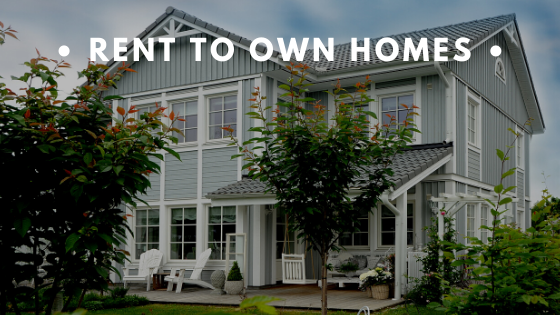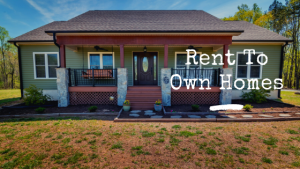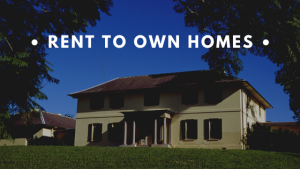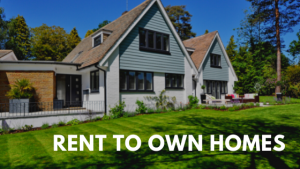Yes, lease purchase is simply a different name (among many) used to describe the same scenario in which a renter (or lessee) has an existing agreement in place where at the end of the lease period (or rental term) there is a set price option at which the lessee or renter has the right of first refusal to purchase the property. Namely – Rent To Own. In many situations (although not in all, and not necessarily) part of each month’s rent or lease payment also goes towards the purchase price of the house, while the majority goes to cover the mortgage costs of the owner/investor who is leasing or renting the house out to the lessee/renter.
This type of arrangement is often beneficial to both parties in that the investor stands to profit from the arrangement whether the renter buys the property at the end or not, and the renter or lessee gets to live in the house of their choice with the locked in option to buy it at a predetermined price, meaning that they can live in and potentially own the house of their choice even though at the current time they are not able to afford the purchase. This kind of arrangement is especially beneficial for “permanent renters” or people who were planning to rent anyways, but only because they cannot afford to buy and are planning on staying in the area in the long-term anyway.

What Is A Lease Purchase or Rent To Own?
A lease purchase is an arrangement in which someone looking to purchase (or rent) a house, and instead decides to enter into a lease agreement with another investor. Basically the way it works is that person A wishes to own a home, but for one reason or another (possibly due to bad or non-existent credit among other reasons) cannot get a traditional mortgage. Person A then finds an investor, Person B, and they enter into an agreement whereby Person B will purchase the house and lease it to Person A, who will then have a right to purchase the house at a predetermined price at the end of the lease period. This gives person A the right of first refusal on buying the home of their choice at a later date, while allowing them to live in presently, in a situation much like a traditional rental.
There are many benefits to a lease purchase or rent to own agreement. For the hopeful home owner, it gives them a chance to build towards (and lock up the option on) a future home even though at present they may not be able to afford one. For a renter, it adds to the equation the possibility of staying on permanently and buying at the end of the rental period (or in this case, the lease period). If at the end of this period the lessee is unable to purchase the house, then the lessor has the option to extend the lease period, convert to a traditional rental agreement, or find a new tenant or buyer. The agreement therefore benefits everyone involved.
However, every state has it’s own regulations. So, rent to own homes in Michigan don’t work the same way as rent to own homes in Illinois work.
Lease Purchase – A Quicker Alternative to Selling Your Property Traditionally
In the current economy, selling a home can be tough (let alone selling it for the full asking price) and many home owners would like to sell their properties, but simply can’t. Many never even consider a lease purchase instead, although they probably should. There are very serious advantages to lease purchase arrangements for those looking to sell their homes, and for many potential sellers, a lease purchase might be the best option for both them and their potential buyers.
The main advantage to a lease purchase agreement is that it can help you get your full asking price for the home (although a bit in the future) and in the meantime, you can often collect a higher than average rent than you would by simply renting your property through a traditional rental agreement. Basically, when you offer a lease purchase, you’re offering the lessee (and future buyer) a very attractive financing option, and that in turn benefits you through the amount of rent you collect as lease payments and the final price you collect upon purchase at the end of the lease term.
You also collect a deposit from the renter/lessee which is non-refundable. This means that at the end of the lease term, if the lessee is unable to or opts not to purchase the property for the pre-arranged purchase price, you continue to own the property and can then begin the process all over again, rent traditionally or sell to another buyer. This means the risk to the lessor/renter is very low, since just about any way you slice it, there is a profit made.




























